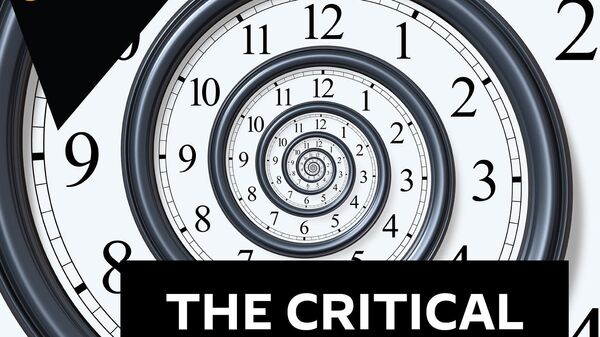It’s Friday, so that means it's panel time.
The Washington Post reported it this way: “Robert Mugabe, the Zimbabwean president who rose to power as a champion of anti-colonial struggle but during 37 years of authoritarian rule presided over the impoverishment and degradation of one of sub-Saharan Africa’s most promising countries, died Sept. 6 at a hospital in Singapore. He was 95.” That statement disgusted me - did not surprise me but disgusted me, because I know better. We'll discuss the man, the freedom fighter, the myth and how the US contributed to the reputation of Mugabe.
The US economy added a disappointing 130,000 jobs in August, the Labor Department said Friday, heightening fears that US President Donald Trump’s trade war is starting to bite. The jobs report has taken on greater significance as concerns grow that the US economy has entered a rough patch. Economists had predicted a gain of 160,000 jobs in August, but anemic hiring in manufacturing, mining, truck driving and retail — industries that are most directly affected by the trade war — helped drag employment gains down this summer. That 130,000 number is not truly representative of the strength of the economy, since hiring in August was boosted by the federal government adding part-time workers for the 2020 US Census. Without the addition of those temporary jobs, the new data reveals private sector companies added 96,000 jobs, the weakest total in many months.
As if the events of recent days were not enough, UK Prime Minister Boris Johnson was dealt a fresh blow on Thursday when his brother Jo quit the government, saying he could no longer reconcile "family loyalty and national interest." Jo Johnson had campaigned strongly against Britain´s exit from the European Union in 2016, a position that put him at odds with his older and more famous brother Boris. What’s next after crushing Tory defeat on a no-deal Brexit?
Marsh Harbour, a port city in the Bahamas of more than 6,000 people, was once home to quaint island businesses and wood-frame homes. When Hurricane Dorian struck the Bahamas as a Category 5 storm, it destroyed homes, cars, and boats and took lives in Marsh Harbour, which was ground zero for the storm's landfall. Dorian basically washed and blew this part of the island off the map, and is now making its way up the East Coast of the US.
The context of global warming and how it relates to Trump reportedly drawing his own map of Dorian's path.
The Pentagon is pulling funding from Hurricane Maria recovery projects at military facilities in Puerto Rico and the US Virgin Islands, and the money is being redirected towards Trump's proposed wall on the US' southern border. Further funding is being redirected from construction projects in Europe, which were intended to strengthen allied defenses. In total, 127 such military construction initiatives in 23 states, three US territories, and 20 countries will lose funding in order to budget $3.6 billion for the border wall, according to a Wednesday release from the Defense Department. This is a real presidential brinksmanship.
A diverse team of advocacy groups kicked off an effort Thursday to convince local, state and federal lawmakers to enact a blanket ban on the use of facial recognition technology by law enforcement. The coalition of organizations, which represents more than 15 million people, warns that the tech imperils fundamental privacy rights and is "spreading like an epidemic." How big of a problem is this technology?
GUESTS:
Sinclair Skinner — Co-founder of BitMari.com, a Pan-African bitcoin wallet.
Dr. Jack Rasmus — Professor of economics at Saint Mary's College of California and author of "Central Bankers at the End of Their Ropes: Monetary Policy and the Coming Depression."
Jim Kavanagh — Political analyst and commentator and editor of The Polemicist.
We'd love to get your feedback at radio@sputniknews.com



